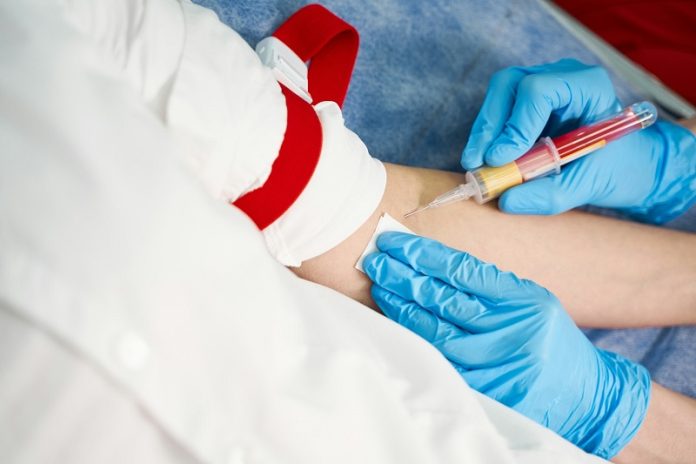
A new blood test for schizophrenia, developed by researchers at the Indiana University School of Medicine, marks a big advance in diagnosing and treating this challenging psychiatric condition.
Schizophrenia, which affects over 3 million people in the United States, is characterized by severe symptoms such as hallucinations and delusions.
The innovative test detects specific biomarkers in the blood, providing an objective way to measure the severity of someone’s condition and their risk of developing schizophrenia in the future.
This could revolutionize how patients are matched with the most effective treatments based on their unique biological makeup.
Schizophrenia has traditionally been difficult to diagnose, particularly in the early stages, making it crucial to align patients with appropriate treatments from the onset.
Dr. Alexander Niculescu, the senior author of the study, emphasizes the importance of early and accurate diagnosis. He points out that young adulthood, the typical onset period for psychosis, is a critical time in life.
Factors like stress and substance use, including marijuana, can trigger psychotic episodes in those genetically predisposed to the condition. Without intervention, psychosis can lead to biological, social, and psychological harm.
The study, published in Molecular Psychiatry, followed psychiatric patients over a decade, identifying biomarkers linked to states of high hallucinations and delusions and predicting future psychiatric hospitalizations.
It also pinpointed which biomarkers are targets for existing medications, facilitating the precise matching of patients to treatments.
This approach is part of a broader shift toward precision psychiatry, which aims to tailor treatments to individual patients based on specific biological indicators.
The research builds on two decades of work by Niculescu and his team on blood biomarkers for various psychiatric disorders, including mood disorders, anxiety, post-traumatic stress disorder, suicidality risk, pain, and memory disorders.
The newly developed test outperforms standard scales for assessing hallucinations and delusions by reducing subjectivity and uncertainty in psychiatric evaluations.
Niculescu highlights the effectiveness of existing medications when correctly matched to patients early in their treatment. Alongside medication, social and psychological support plays a critical role in managing schizophrenia.
This new test not only promises to enhance our understanding of cognition and its disorders but also offers hope for more personalized and effective treatment strategies for those affected by schizophrenia.
The research findings can be found in Molecular Psychiatry.
Copyright © 2024 Knowridge Science Report. All rights reserved.



